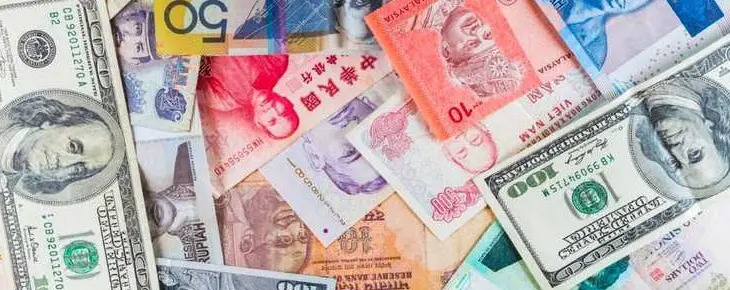
Explore Global Currencies
Dive into the world of international finance and discover the official currencies of different countries. Perfect for travelers, students, and finance enthusiasts.
| Country | Currency | Code |
|---|
Countries and Their Currencies: An In-Depth Guide
In today’s interconnected world, understanding the currencies of different countries is more important than ever. Whether you’re a traveler, an investor, or simply curious about global economics, knowing the basics of international currencies can provide valuable insights. This comprehensive guide will take you through the currencies of various countries, their historical context, exchange systems, and economic implications.
Understanding Exchange Rates and Their Impact
What Are Exchange Rates?
Exchange rates determine the value of one currency in relation to another. They are crucial for international trade, tourism, and investments. Exchange rates can be influenced by various factors, including:
- Inflation Rates: Higher inflation typically leads to a decrease in currency value.
- Interest Rates: Higher interest rates can attract foreign capital, increasing the currency’s value.
- Political Stability: Stable governments often have stronger currencies.
- Economic Performance: A strong economy usually means a strong currency.
How Are Exchange Rates Determined?
Exchange rates can be determined in several ways:
- Floating Exchange Rates: These are determined by the market forces of supply and demand.
- Fixed Exchange Rates: These are set by the government and do not fluctuate with market conditions.
- Pegged Exchange Rates: These are fixed to another currency or a basket of currencies.
The Role of Central Banks
Central banks play a crucial role in managing a country’s currency. They can influence exchange rates through monetary policy, such as adjusting interest rates or buying and selling currencies in the foreign exchange market.
Currencies of the World
United States Dollar (USD)
The USD is the most widely used currency in international transactions. It is the official currency of the United States and several other countries and territories. The Federal Reserve, the central bank of the U.S., manages the USD.
Euro (EUR)
The Euro is the official currency of 19 of the 27 member states of the European Union. Introduced in 1999, the Euro has become the second most traded currency globally. The European Central Bank (ECB) oversees the Euro.
Japanese Yen (JPY)
The Japanese Yen is the official currency of Japan. It is the third most traded currency in the world. The Bank of Japan manages the JPY and plays a significant role in the global economy.
British Pound (GBP)
The British Pound is the official currency of the United Kingdom. It is one of the oldest currencies still in use today. The Bank of England manages the GBP and is known for its stability and strength.
Chinese Yuan (CNY)
The Chinese Yuan, also known as the Renminbi, is the official currency of the People’s Republic of China. It is managed by the People’s Bank of China and has gained significant global influence in recent years.
Indian Rupee (INR)
The Indian Rupee is the official currency of India. Managed by the Reserve Bank of India, the INR is one of the most traded currencies in Asia.
Australian Dollar (AUD)
The Australian Dollar is the official currency of Australia. It is known for its stability and is managed by the Reserve Bank of Australia.
Canadian Dollar (CAD)
The Canadian Dollar is the official currency of Canada. It is managed by the Bank of Canada and is often referred to as the “Loonie” due to the loon bird featured on the one-dollar coin.
Swiss Franc (CHF)
The Swiss Franc is the official currency of Switzerland. It is known for its stability and is managed by the Swiss National Bank.
South African Rand (ZAR)
The South African Rand is the official currency of South Africa. It is managed by the South African Reserve Bank and is an important currency in the African continent.
Historical Context of Currencies
The Gold Standard
The Gold Standard was a monetary system where the standard economic unit of account was based on a fixed quantity of gold. Many countries adopted the Gold Standard in the late 19th and early 20th centuries, but it was abandoned during the Great Depression.
The Bretton Woods System
The Bretton Woods System was established in 1944 to create a new international monetary system. It pegged the value of the USD to gold and other currencies to the USD. This system collapsed in the 1970s, leading to the current floating exchange rate system.
The Eurozone Crisis
The Eurozone Crisis began in 2009 and involved several Eurozone countries facing severe economic difficulties. It highlighted the challenges of managing a single currency across multiple countries with different economic policies.
Economic Implications of Currencies
Impact on Trade
Currency values significantly impact international trade. A strong currency makes imports cheaper and exports more expensive, while a weak currency has the opposite effect.
Impact on Investments
Currency fluctuations can affect the returns on international investments. Investors need to consider exchange rate risks when investing in foreign markets.
Impact on Tourism
Tourism is heavily influenced by exchange rates. A strong currency makes travel more expensive for foreign visitors, while a weak currency makes it more affordable.
Understanding the Basics
Key Concepts in Currency Exchange
Forex Market: The foreign exchange market is where currencies are traded. It is the largest financial market in the world.
Currency Pairs: Currencies are traded in pairs, such as USD/EUR or GBP/JPY.
Bid and Ask Prices: The bid price is the price at which a trader is willing to buy a currency, while the ask price is the price at which a trader is willing to sell.
Factors Affecting Currency Value
Economic Indicators: GDP, unemployment rates, and inflation rates are crucial economic indicators that affect currency value.
Political Events: Elections, political stability, and geopolitical tensions can impact currency values.
Market Sentiment: Investor confidence and market sentiment play a significant role in currency fluctuations.
Conclusion
Understanding the currencies of different countries is essential for navigating the global economy. Whether you’re a traveler, an investor, or simply curious about the world, knowing the basics of international currencies can provide valuable insights. This guide has covered the currencies of various countries, their historical context, exchange systems, and economic implications.
We encourage you to explore further and stay informed about global economic trends. Happy learning!
Learn MoreWelcome to Our FAQ Section
Find answers to common questions about countries and their currencies.
FAQ: Countries and Their Currencies
What is the currency of Laos?
Laos uses the Kip (LAK) as its official currency.
What is the currency of Japan?
Japan uses the Yen (JPY) as its official currency.
What is the currency of the United States?
The United States uses the Dollar (USD) as its official currency.
What is the currency of the United Kingdom?
The United Kingdom uses the Pound Sterling (GBP) as its official currency.
What is the currency of Australia?
Australia uses the Dollar (AUD) as its official currency.
What is the currency of Canada?
Canada uses the Dollar (CAD) as its official currency.
What is the currency of India?
India uses the Rupee (INR) as its official currency.
What is the currency of Brazil?
Brazil uses the Real (BRL) as its official currency.
What is the currency of South Africa?
South Africa uses the Rand (ZAR) as its official currency.
What is the currency of Switzerland?
Switzerland uses the Franc (CHF) as its official currency.
What is the currency of China?
China uses the Yuan Renminbi (CNY) as its official currency.
What is the currency of Russia?
Russia uses the Ruble (RUB) as its official currency.
What is the currency of Mexico?
Mexico uses the Peso (MXN) as its official currency.
What is the currency of Germany?
Germany uses the Euro (EUR) as its official currency.
What is the currency of France?
France uses the Euro (EUR) as its official currency.
What is the currency of Italy?
Italy uses the Euro (EUR) as its official currency.
What is the currency of Spain?
Spain uses the Euro (EUR) as its official currency.
What is the currency of South Korea?
South Korea uses the Won (KRW) as its official currency.
What is the currency of Saudi Arabia?
Saudi Arabia uses the Riyal (SAR) as its official currency.
What is the currency of Argentina?
Argentina uses the Peso (ARS) as its official currency.
What is the currency of Turkey?
Turkey uses the Lira (TRY) as its official currency.
What is the currency of Indonesia?
Indonesia uses the Rupiah (IDR) as its official currency.
What is the currency of Netherlands?
The Netherlands uses the Euro (EUR) as its official currency.
What is the currency of Sweden?
Sweden uses the Krona (SEK) as its official currency.
What is the currency of Belgium?
Belgium uses the Euro (EUR) as its official currency.
What is the currency of Poland?
Poland uses the Zloty (PLN) as its official currency.
What is the currency of Thailand?
Thailand uses the Baht (THB) as its official currency.
What is the currency of Egypt?
Egypt uses the Pound (EGP) as its official currency.
What is the currency of Nigeria?
Nigeria uses the Naira (NGN) as its official currency.
What is the currency of Malaysia?
Malaysia uses the Ringgit (MYR) as its official currency.
What is the currency of Vietnam?
Vietnam uses the Dong (VND) as its official currency.
What is the currency of Philippines?
The Philippines uses the Peso (PHP) as its official currency.
What is the currency of Chile?
Chile uses the Peso (CLP) as its official currency.
What is the currency of Colombia?
Colombia uses the Peso (COP) as its official currency.
What is the currency of Peru?
Peru uses the Sol (PEN) as its official currency.
What is the currency of Iran?
Iran uses the Rial (IRR) as its official currency.
What is the currency of Norway?
Norway uses the Krone (NOK) as its official currency.
What is the currency of Austria?
Austria uses the Euro (EUR) as its official currency.
What is the currency of Greece?
Greece uses the Euro (EUR) as its official currency.
What is the currency of Portugal?
Portugal uses the Euro (EUR) as its official currency.
What is the currency of Denmark?
Denmark uses the Krone (DKK) as its official currency.
What is the currency of Finland?
Finland uses the Euro (EUR) as its official currency.
What is the currency of Czech Republic?
The Czech Republic uses the Koruna (CZK) as its official currency.
What is the currency of Romania?
Romania uses the Leu (RON) as its official currency.
What is the currency of Hungary?
Hungary uses the Forint (HUF) as its official currency.
What is the currency of New Zealand?
New Zealand uses the Dollar (NZD) as its official currency.
What is the currency of Singapore?
Singapore uses the Dollar (SGD) as its official currency.
What is the currency of Hong Kong?
Hong Kong uses the Dollar (HKD) as its official currency.
What is the currency of Israel?
Israel uses the Shekel (ILS) as its official currency.
What is the currency of United Arab Emirates?
The United Arab Emirates uses the Dirham (AED) as its official currency.





